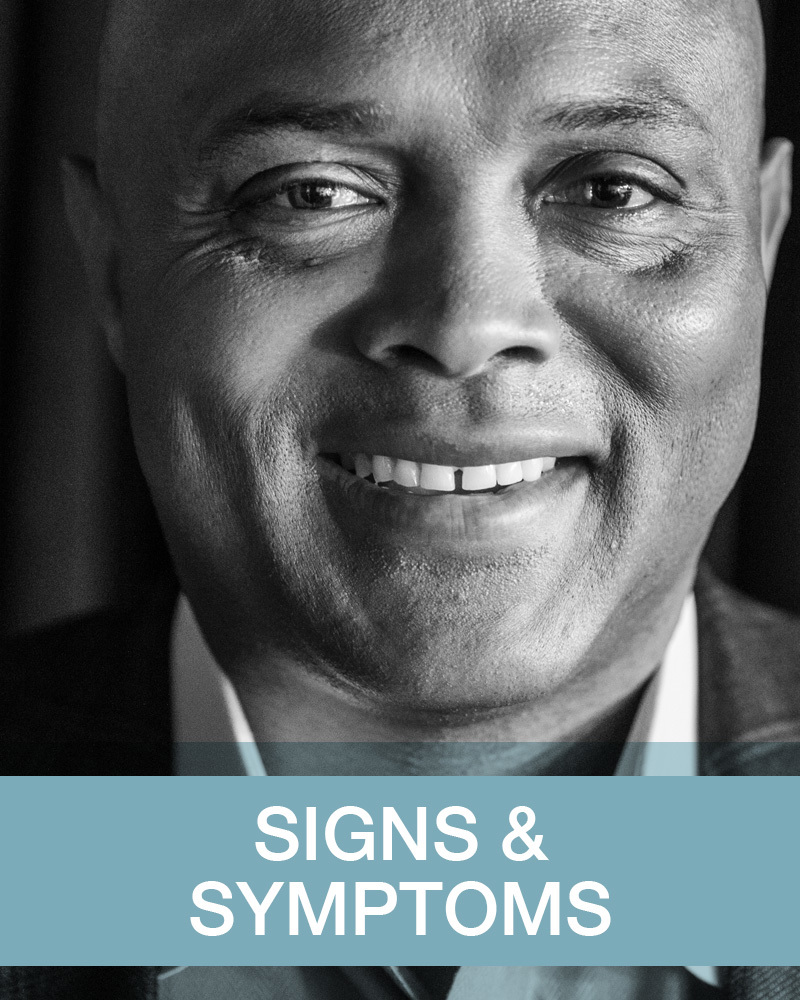Anxiety
It’s common to feel nervous or on edge, but is it interfering with your daily life? Get support and resources through the NFLPA.
Anxiety: the most commonly diagnosed mental health concern in the US. About a quarter of the population meet the criteria for an anxiety disorder at some point in their lives.
In small amounts, anxiety can actually be helpful—for example, it’s often your level of anxiety that provides the needed “adrenaline rush” for competition, or produces the motivation and momentum required to accomplish tasks.
Is your anxiety occurring too frequently, too easily triggered, or too long-lasting? It might be time to seek support. All anxiety disorders are marked by negative emotions, tension, and an apprehension of future danger or misfortune. Thankfully, they can be successfully treated.
Mythbusting
MYTH:
People who suffer from anxiety are weak.
FACT:
Anxiety is an adaptive emotion that most of us experience, and anxiety disorders can happen to anyone. Causes can include genetics, irrational thoughts, and environmental stressors, among others. Too often, anxiety symptoms such as increased heart rate, loss of breath, shaking hands, muscle tension, and concentration difficulties are brushed off as not a big deal. However, left unchecked, anxiety can contribute to additional issues, including depression and substance abuse.
MYTH:
Fear and anxiety are the same thing.
FACT:
While anxiety can sometimes be a result of fear, they are not the same. Fear is typically the psychological and physiological response to a real threat or danger. In contrast, anxiety is most often the result of a perceived threat or the apprehension of danger. In other words, there may not be a real threat present, but someone who suffers from anxiety is responding as if there is something dangerous looming.
Signs & Symptoms
Physical and physiological symptoms:
Rapid heart beat; shortness of breath; sweaty palms; dry mouth; muscle tension; and chronic gas or indigestion.
Behavioral and emotional symptoms:
Difficulty sleeping; feelings of panic, general uneasiness, or a sense of dread.
Cognitive symptoms:
Excessive worry; rumination (or thinking about something over and over again); difficulty focusing or concentrating; irrational fear and self-doubt.

Player Tips
Don’t wait for a crisis:
Early intervention will allow you to get your anxiety symptoms under control. Anxiety will contribute to depression or increased use of substances if you ignore the signs or wait for something significant to happen.
Self-talk awareness:
You may be surprised to realize how often the conversation in your head becomes negative when you make a mistake. Recognize critical self-talk and the mistakes or actions that trigger negative conversations with yourself. Work to challenge those negative thoughts to make them more positive.

Don’t forget to breath:
This sounds like such a simple strategy, but it is one often overlooked. Taking a deep breath in moments of high stress can often be used as an opportunity to refocus and re-center. In the middle of stressful situations or when anxiety runs high, there is often the tendency to resort to short breathing, which increases anxiety. Taking a deep breath may allow you a moment to use additional strategies (positive self-talk, cue statements, goal reminders) that can also decrease anxiety.
Use goal setting to accomplish tasks:
Goals should be measurable, challenging, and attainable. Setting realistic goals can increase confidence and the feeling of being prepared. Considering the impact that lack of confidence can have on anxiety, one way to reduce uncertainty is to be prepared for today or the future. Good financial planning, career education, or preventative physical care are all areas where goal setting and planning are essential, and can help decrease anxiety levels so that you don’t have to worry so much about the future.
National Suicide Preventation Hotline
1-800-273-8255
NFL Lifeline
1-800-506-0078